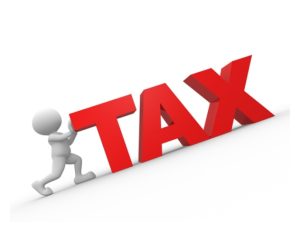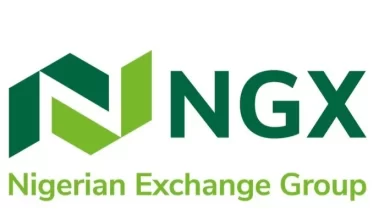How multiple taxation cripple businesses, companies in Nigeria

Though considered a civic duty, tax remittance is a significant source of revenue generation that helps the government to meet its statutory obligations. However, its multiplicity and duplication by government agencies has turned it into a clog in the wheel of progress for companies, micro, small and medium-scale businesses struggling to survive amid worsening economic conditions and unfriendly operating environment, Damilola Olufemi reports
As 2012, the year of retirement inched closer for Bassey Christopher, a Customs officer, the thought of setting up a pure water business that he can later rely on as a constant source of income occupied his mind.
After painstakingly gathering necessary information about the business, he opened a pure water factory at Iba, in the Ojo Local Government Area of Lagos, and commenced production with just two processing machines.
By 2015, the now lucrative business was expanded to include the production of bottled water.
However, years later, bankruptcy stared Christopher in the face due to the huge amount of taxes he remits annually to various government agencies.
The taxes made it inevitable for him not to obtain bank loans to keep his business afloat and he groaned heavily under accruing high interest rates and mounting debt.
The retired customs officer lamented that a greater percentage of the loans he obtained from banks goes into tax payments to the Federal Inland Revenue Service, Lagos State Internal Revenue Service and local government agencies.
He said despite lodging complaints with the state government about similarities in the taxes and their accompanying huge financial burden, nothing changed.
“I am not the only one suffering from this rip-off. Most people into manufacturing and production have channelled complaints officially to the state governor,” he added.
Christopher lamented that the high cost of production has made it impossible for a loan of N5m, which he usually took, to cover the running cost at his factory.
Major among his worries is the payment of staff salaries, which he lamented, had become practically impossible.
Speaking with PUNCH Investigations, Christopher lamented the precarious financial situation of his pure water factory, noting that the heavy taxation has made things more difficult. He expressed the fear that he may have to close down the factory and release the 68 staff working with him to the labour market.
“The cost implication of multiple taxations has made me to consider letting some of them go. High cost of production, low sales, and insignificant profit margin, among other factors, have adversely affected my business. Many people into business stand the risk of losing their property due to the inability to offset loans taken from banks,” Christopher said despondently.
A civic duty abused
Globally, the major source of funds to run government organs effectively has always been through revenue generated directly or indirectly through taxes.
Tax itself is a compulsory (which makes its evasion punishable) contribution to state revenue and is levied by the government on salary, business profits, transactions and even on services.
Be that as it may, the appropriateness of coming up with different names for the same tax by federal, state and local government agencies; ministries, among others, despite clear legislation that outlined lists of taxes and levies to be collected by the three tiers of government, has continued to generate debates.
Tax duplication has been highlighted as a significant contributor to the poor ranking of Nigeria on the world ease of doing business index.
Even though there has been a directive to enforce the Taxes and Levies (Approved Rate for Collection) Decree 1998, which specifically spelt out punitive measures for illegal tax collection, the business of multiple taxes still thrives, causing disincentive in the business community.
Multiple taxations jeopardy
A check by PUNCH Investigations on the website of Nigeria’s leading integrated market infrastructure in Africa, Nigeria Stock Group, indicated that in 2022, a total of 157 companies were listed.
However, many companies or businesses in Lagos, despite their relevance and growth to the national economy, are adversely affected or have been crippled by multiple taxes.
Good as the intention behind tax might appear, it has been observed that the existing tax system across the country, particularly in Lagos, diminishes returns on investment, affects capital base, and more often, lead to the total collapse of businesses and companies.
Corporate and business taxpayers are often faced with multiplicity and duplication of taxes levied by different levels of government
The Federal Inland Revenue Service in a document, highlighted company tax and Value Added Tax as some of the eight taxes collected by the Federal Government, while the state and local governments collect 11 and other 20 taxes respectively.
Based on PUNCH Investigations findings, these taxes, alongside others imposed by various levels of government have no doubt, become a burden to companies, industries, low and medium-scale businesses, as well as consumers across the country.
In a research carried out by the Chartered Institute of Taxation of Nigeria on why these taxes exist, the root of multiple taxations was linked to greed, perceived unfair revenue formula and the quest to boost internally generated revenue of states and local councils.
Speaking on this, the President, Lagos Chamber of Commerce and Industry, Benjamin Idahosa told PUNCH Investigations that some levies are backed by law and are collected by FIRS.
He listed the Industrial Training Fund as one of the taxes employers must pay at all levels of government and called on the federal government to harmonise taxes paid by employers to be channelled to a single agency rather than have them paid to several agencies.
Every employer that has more than five employees in Nigeria has to pay the ITF. Since it’s paid to the federal, state or local governments, it can be paid to a single government agency,” Idahosa added.
Speaking further on the CITN research, he said, “The end product of the research is that multiple taxations thrive in Nigeria because of perceived unfair revenue formula, lack of political will-power on the part of the executive arm of relevant governments saddled with the responsibility of enforcing or executing laws that are made in this regard. They now find it difficult to finance, properly or rightly equip their revenue agencies. It has also been contended that apart from other reasons why holders of political power may be failing to properly address the issue, greed on the part of the few in positions of authority is also a factor.”
Taxes payable to companies
One major outcry by companies in Nigeria has always been the multiplicity of taxes paid to agencies in federal, state and local governments.
Aside from those paid to the state and local governments by companies, there are several others that are made compulsory by law and are collected by the FIRS, on behalf of the federal government.
They include company income tax, stamp duties, capital gains tax, personal income tax, withholding tax, industrial training fund tax, Value Added Tax and education tax, among others.
Prominent among them and which resonates more with Nigerians is the Value Added Tax – a consumption tax levied on goods at each level of sales where value has been added.
This process begins from the raw material stage to retail sales and point of purchase.
According to the FIRS, VAT is imposed on goods and services sold to the public, and it is governed by the Value Added Tax Act Cap V1, LFN 2004 as amended.




